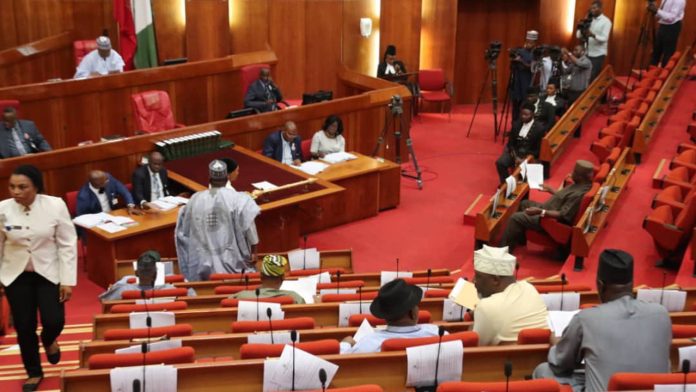The African Center for Media and Information Literacy (AFRICMIL), has called for the urgent passage of the Whistleblowers Protection Bill to strengthen the fight against corruption in the country.
The Coordinator of the non-governmental organisation (NGO), Dr Chido Onumah, made the call at a one-day workshop for Law Enforcement and Anti-Corruption Agencies in Port Harcourt on Thursday.
The workshop was organised by AFRICMIL, in collaboration with SocialAction, and supported by MacArthur Foundation.
The News Agency of Nigeria (NAN) recalls that the whistleblowing policy was introduced by the Federal Government in 2016 as part of its anti-corruption measures.
According to Onumah, whistleblowing has been described as one of the most effective methods of exposing corrupt acts and fostering accountability in the internal management of organisations.
He said that the workshop, with the theme, “Strengthening Anti-corruption and promoting accountability through whistleblowing and whistleblower protection”, was designed to bring together critical institutions tasked with arresting corruption and other crimes that endanger society’s wellbeing.
He said that as reports of disclosures and recoveries continued to rise in the public sector, whistleblowers in different government agencies, increasingly became victims of vicious retaliation in the absence of a protection law and despite provisions for their safety as captured in section 6 of the whistleblowing policy.
Onumah also said that the lack of citizens’ protection, mostly public sector workers, “made them lose interest in blowing the whistle on corruption and other types of wrongdoing due to fear of the consequences”.
He said that various attacks on whistleblowers, such as suspension, denial of salaries and other benefits, punitive transfers, denial of promotion to outright dismissal, caused a steady reduction in the volume of disclosures recorded over the years, making it seem as if the policy had been abandoned.
“We expect that the workshop will give richer and stronger resolve to investigate reports of corruption and wrongdoing and protect our compatriots who become victims of impunity and abuse of power only because they made disclosures against corrupt and other illegal practices that threaten society’s wellbeing.
“Prompt passage of whistleblowing policy and the protection of whistleblowers bill will promote whistleblowing and strengthen the fight against corruption,” Onumah said.
Also, the Deputy Director, Federal Ministry of Finance, Mr Johnson Oludara, while speaking on the topic, “Understanding Nigeria’s Whistleblowing Policy”, said that there was a serious need to continuously discuss the whistleblowing policy.
Oludara said that many Nigerians thought that the policy was no longer in force, adding that the policy remains important to the success of the fight against corruption, economic and financial crimes.
He argued that some of the benefits of the whistleblowing policy in Nigeria encouraged people to report suspected wrongdoings, or preventing occupational fraud and unfair treatment in the workplace in most cases.
He said: “Having a whistleblowing system is enough to deter people from committing any misconduct for fear of legal prosecution.
“The whistleblowing policy in the country is a big threat to the corrupt elements.”
Oludara also listed some of the challenges facing whistleblowing policy to include the “lack of involvement by Nigerians and ownership of the fight against corruption”.
He advised Nigerians to take ownership of the fight against corruption by reporting to the Economic and Financial Crimes Commission, using various options made available by the government, including the whistleblowers policy.
The Executive Director Social Action, an NGO, Dr Isaac Osuoka, also reiterated the call for the passage of the whistleblowers’ bill, saying that it would bolster the anti-corruption war.
Osuoka, represented by the Acting Executive Director of the group, Mercy Atsekurubu, called for collaboration among the anti-corruption agencies, civil society organisations and media in the collective fight against corruption. (NAN)


